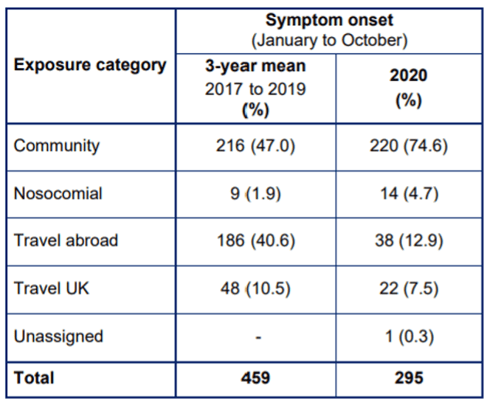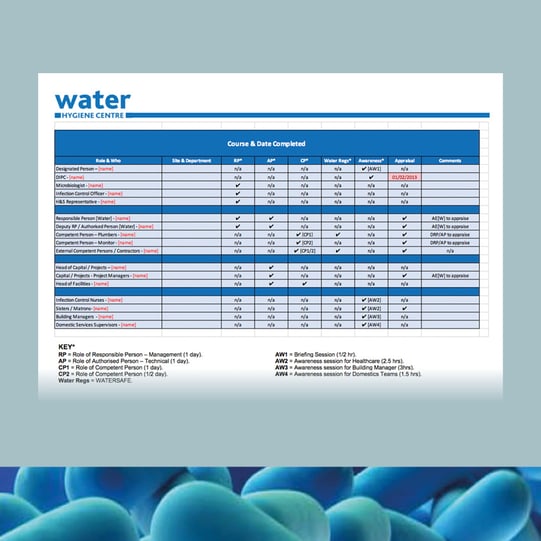Do I Really Need Further Training in Legionella?
Further legionella training [and water safety] is more than likely going to be needed. The risk of legionella [and other waterborne pathogens] is one that needs continual management within an organisation.
SHTM04-01 Part B para 5.2 provides an overview for the need for ongoing training:
“The rate of change in building service technology is not great, but knowledge of harmful bacteria continues to grow and management should review the competence of staff on a regular basis, and refresher training should be given; records of training attendance would need to be maintained.”
With time, change happens… employees are promoted, some leave, new join and processes may change for documenting tasks completed. Examples of such change require a review of whether more training is needed, it might be that a new building manager has been recruited, who has had legionella awareness training with their previous employer, and this would be helpful! But training that is applicable to the new employer covering roles, governance policy arrangements, processes and documentation will be needed, for example, Legionella Responsible Person training online. A newly recruited Competent Person to assist with temperature monitoring, flushing of outlets will also require this organisational specific training, with additional elements relating to the technical aspect of their role, for example, Legionella Competent Person training.
This is not the end of training. We’ve established that initial training is a necessity and this training must be suitable and sufficient to a level that ensures they can deliver their roles and responsibilities safely and competently. The HSE have further detailed in ACoP L8 paragraph 51:
“… and receive regular refresher training. Keep records of all initial and refresher training.”
And in HSG274 Part 2 paragraph 18:
“Regular refresher training should be given and the responsible person(s) should have a clear understanding of their role and the overall health and safety management structure and policy in the organisation.”
Although, there is no indication of a frequency for ‘refresher training’ detailed in the above referenced documents. Reaching for further guidance on a frequency of training, the HSE HSG65 ‘Managing for Health and Safety’ details: “competence levels will drop if skills are not used on a regular basis – schedule refresher training at regular intervals.” Yet again, no frequency is detailed.














